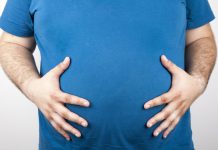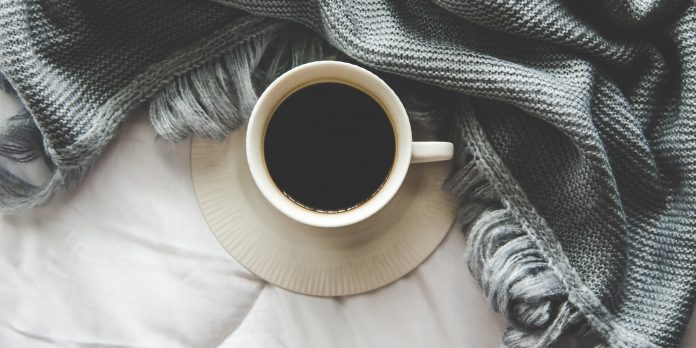It’s 4 o’clock, you can barely keep your eyes open, and you’ve got a tough decision to make. Should you ride out the exhaustion (and possibly face plant at your desk)? Or should you perk yourself up with a cup of coffee—and potentially put the good night’s sleep ahead of you in peril?
It’s a real tradeoff, and it’s hard to know if it’s one worth making. Here’s what to know about how late you can drink coffee without sacrificing sleep.
How caffeine keeps you awake
Let’s briefly refresh ourselves on how coffee provides its signature buzz in the first place. Coffee contains the central nervous system stimulant known as caffeine. Caffeine acts on a chemical in your brain called adenosine, neurologist and sleep medicine specialist Ajay Sampat, M.D., assistant clinical professor at UC Davis Health, tells SELF. “Adenosine is like a sleep-inducing molecule that your brain makes while you’re awake. The longer you’re awake, the more adenosine you have in your system,” Dr. Sampat explains. And caffeine is essentially an adenosine antagonist, binding to molecules of adenosine and lessening its sleep-inducing effects, Dr. Sampat says.
The thing is, caffeine is kind of like an obnoxious party guest: It arrives with a bang, peaks early, and then lingers for hours, long after the initial excitement has worn off. Caffeine’s primary stimulant effects occur in the first hour or so, when it reaches peak levels in your blood, according to the U.S. National Library of Medicine.“Most people feel that jolt of energy around the first 15 to 45 minutes,” Dr. Sampat says.
But it takes a long, long time for caffeine to completely leave your system, with its zippy side effects gradually wearing off as time passes and your body metabolizes it, Dr. Sampat says. Typically, the half-life of caffeine is around four to six hours, according to the Food and Drug Administration (FDA), meaning that four to six hours after consumption, about half of that caffeine is still in your system. At this point, you may still be feeling some stimulant effects of the caffeine, Dr. Sampat says. Then, another four to six hours later, half of that amount is gone. If you drink a cup of coffee containing 100 mg of caffeine at 10 a.m. (about one 8-ounce cup of coffee) as much as 25 mg may still be in your system when you lay down at 10 p.m., whereas if you drink 200 mg at 4 p.m. (twoish 8-ounce cups), about 100 mg can still be in your system at 10 p.m.
Now, whether or not having some caffeine left in your system actually messes with your sleep depends on a whole bunch of individual factors, which we’ll get to in a minute. But generally speaking, there is good evidence that caffeine can affect both the quantity and quality of sleep for many people.
Caffeine’s primary effect is that it makes it harder to fall asleep initially (also called prolonged sleep latency), Dr. Sampat says. But caffeine can also reduce your total sleep time by interrupting your sleep throughout the night. “Caffeine can increase your arousal frequency—how many times your brain wakes up each night, though you may not remember,” Dr. Sampat explains. This makes your sleep less efficient and can make you feel less refreshed in the morning. Caffeine may also interfere with the way you progress through the various stages of sleep, Dr. Sampat says, reducing the time spent in slow-wave sleep ,the deepest stage of sleep. (There is also strong evidence that the more caffeine you drink and the later in the day you drink it, the more likely you are to get a bad night’s sleep, which makes perfect sense considering how half-life elimination works.)
Why caffeine affects everyone differently
So that’s the basic science on how caffeine can harm our sleep. But when it comes to how coffee impacts one person’s sleep versus another’s IRL, it can be a totally different story. We all know someone who can pound two double espressos and appear impervious to its effects, as well as someone who gets jittery after a cup of black tea. What’s the deal? “Like almost everything else in sleep medicine, there’s really just a lot of variability here,” Dr. Sampat says. “There are so many different elements with this. Every person reacts differently to [caffeine].”
We can chock a lot of this variability up to genetics, Dr. Sampat says. Our natural sensitivity to caffeine and the rate at which we metabolize it can differ hugely from one person to the next. While we don’t fully understand the genetic component yet, we do know that there are genetic variations in both the various adenosine receptors that caffeine targets and the main liver enzyme that metabolizes caffeine, called cytochrome P450, Dr. Sampat explains. So while the typical half-life of caffeine may be four to six hours, that’s far from being true for everyone.
Then there are medical variables and lifestyle factors. We can shape our caffeine sensitivity with our caffeine-drinking habits. The more caffeine we regularly drink, the more we develop a tolerance, or decreased sensitivity—meaning we need more and more to feel its effects. There are also certain medications that can interact with and affect how quickly we metabolize caffeine. That liver enzyme, cytochrome P450, also metabolizes other drugs in addition to caffeine (like the beta blocker propranolol). So, for example, if those liver enzymes are busy processing another drug while you’re sipping on a cold brew, the caffeine has to wait its turn to be metabolized, lengthening the amount of time it takes for the caffeine to hit you (and wear off), Dr. Sampat says.
It’s also possible for the way caffeine affects you to change over the years. Many people find their caffeine sensitivity increases with age—so if it seems like your evening espressos are all the sudden betraying you, you’re probably not wrong. It’s not totally clear why this happens, but it may be related to the same metabolic and genetic variations we have with caffeine processing in general, Dr. Sampat says. Plus, as people get older, they are more likely to have a hard time falling and staying asleep anyway, Dr. Sampat points out, so the stimulant effects of caffeine become more noticeable and problematic.
What to do if you think caffeine is keeping you up
Perhaps your life experience thus far indicates you are one of those people who can drink coffee at all hours and still sleep like a rock. If so, congratulations, and don’t change a thing, you’re perfect. “If you don’t have trouble falling asleep and you feel well rested during the day, then [drinking coffee late in the day] is fine,” Dr. Sampat says.
If, however, you’re curious about whether caffeine is keeping you up at night—or already convinced that it is—then it is absolutely worth a little experimentation. Sleep is foundational to good health, and if your 4 o’clock latte is impacting it then you ought to be aware of that.
The first thing you’ll want to tinker with is the time of day you stop drinking coffee. As a rule of thumb, Dr. Sampat recommends most people have their last cup at least eight to ten hours before bedtime, which gives those two caffeine half-lives time to break down. This works out to a cutoff time of about 12 p.m to 2 p.m. for most people, so a simple guideline to follow is to stop drinking coffee after lunch, Dr. Sampat says. (If you think you can game the system by just pounding all your coffee in the morning and early afternoon, I have some bad news for you. It won’t work; upping the quantity of caffeine just means there will be more than usual in your system later, negating the benefits of consuming it earlier.)
Given the variation in how we all respond to caffeine, though, “following general guidelines can be helpful, but trying it out on yourself and seeing what’s affecting you is the only way to know,” Dr. Sampat says. In his experience, “trial and error is often needed to find the right balance for an individual patient. It really depends on the person.” You might find you can tolerate coffee until 10 a.m. or 4 p.m., and that’s something your doctor can’t tell you. The other way to modify your caffeine intake for the sake of better sleep is by cutting down on the amount. Try having one less cup a day and see what happens. (Or swapping in decaf, which still does have a tiny bit of caffeine.)
No matter what change you make, Dr. Sampat advises doing it gradually and/or “on days where you’ll be able to tolerate any potential effects,” like drowsiness, irritability, or a headache. (So, not the day of a big work presentation.) “You can probably figure it out if the changes are helping you sleep better within a few days.”
























